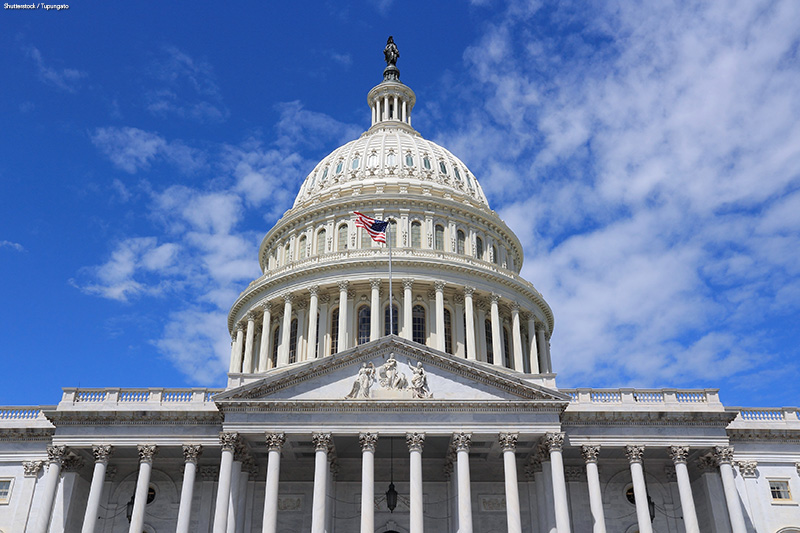YOU DECIDE: Should Congress Raise the Debt Ceiling?
In 1917, Congress created the “debt ceiling,” which is the maximum amount of money that the U.S. Treasury can borrow to pay for government programs and activities. Since 1959, lawmakers of both political parties have raised the debt ceiling 89 times. Most recently, in 2021, President Biden signed legislation increasing the debt ceiling to $31.4 trillion, which is where it currently stands. But the federal government is about to hit that spending limit. So now, Congress must consider whether to raise the debt ceiling again. If Congress refuses to raise it, then the federal government will default on, or fail to pay, its loans and contracts, which will have catastrophic effects for the economy. This leads many economists to ask if a debt ceiling is still a good idea, or if it should be abolished altogether.

YOU DECIDE: Should the debt ceiling be abolished?
NO
- The debt ceiling was created in 1917 to give Congress a “check” on government spending. In other words, every few years, lawmakers must look at how and where money is being spent and find ways to cut back on that spending. Removing the debt ceiling takes that power away from Congress.
- The U.S. national debt is already the largest national debt in the world— more than the value of the economies of China, Japan, Germany, and the United Kingdom combined. It has nearly tripled since 2009. Every year since 2001, the U.S. federal government has spent about a trillion dollars more than it takes in. It is important to keep a cap on that spending.
- According to the Congressional Budget Office, raising the national debt by even one percentage point could raise interest rates by two to three points, which slows the economy and could eventually lead to a recession, or an economic downturn.
YES
- The issue of the debt ceiling has become highly politicized in recent years, causing the federal government to come to the brink of shutdown every few years. This has devastating effects on the economy. For example, Congress’s reluctance to raise the debt ceiling in 2011 cost the U.S. $1.3 billion that year alone.
- Raising the debt ceiling does not authorize new government spending. Rather, it just allows the Treasury Department to pay for programs and activities that have already been approved by Congress. If the government defaults on these payments, it would cause interest rates to rise and push the U.S. economy into a prolonged recession, resulting in a predicted loss of about three million jobs.
- Few countries other than the U.S. have a debt ceiling, and in the ones that do, the ceiling is so high that the amount of government debt never comes close to approaching it. The U.S. is the only country that regularly reaches the point of economic “brinkmanship” over its national debt.
